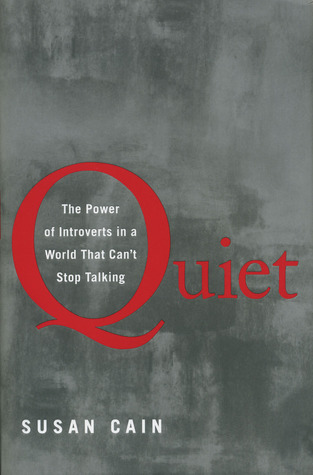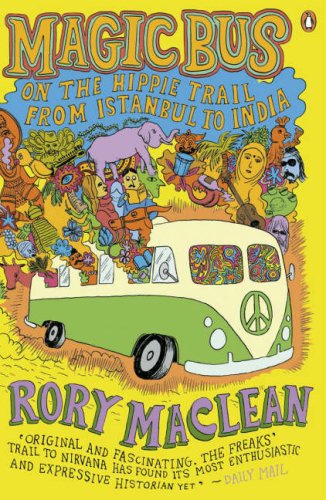April 2013
Monthly Archive
April 13, 2013
Yes! I do recommend that you join Goodreads. http://www.goodreads.com/
Share your thoughts about books; find out what your friends are reading; follow and find out what your favorite authors have to say.
I started getting particularly enthused when a Facebook friend invited me to join (even though I was already a member.) I accepted the Facebook application (one of my very few) and soon I started getting emails about what some of my other Facebook friends were reading. Nice!
I’m a writer that has trouble knowing what to write about. I’ve found this to be a great motivator!!!
//
April 13, 2013
Posted by Amy Eighttrack under
Books,
Crime,
reviews | Tags:
Books,
Crime,
reviews |
1 Comment

4 out of 5 stars
A very good, well researched book with a surprisingly comprehensive breadth. I didn’t read the whole thing. Any detailed mob history would be a bit a gruesome; and when you get the broader picture, some of the minutiae seems unnecessary. Still, it’s good for the historians interested in more specific cases; and it does address well a very broad subject.
Some of what I found particularly interesting reading was: Tammany Hall in New York; the use of mob goons in strike-breaking; the background and eventual ascension of Al Capone in Chicago through the systematic elimination of rival Irish gangs; ‘Legs’ Diamond, ‘Mad Dog’ Coll, et al and the push of Irish gangsters to the fringes by the Combine (Italian and Jewish gangsters); the protection of Whitey Bulger in Boston by his state senator brother and due to his informer status by his corrupt F.B.I. handler (Bulger once strangled a 26 yo woman simply because she wanted to break up with his partner Steve Flemmi); the ruthlessness of the Prohibition-Era gangsters; the portrayal of gangsters by the likes of James Cagney; the Pendergast Machine in Kansas City, so similar to Tammany Hall; the Westies in NYC; and the hardening and callousness of mob killers through their service as U.S. war veterans.
April 13, 2013
Posted by Amy Eighttrack under
Books | Tags:
Books |
1 Comment

3 1/2 stars out of five.
I was somewhat disappointed. It didn’t seem to live up to the promise of the title, and the overall positive high rating that people gave it. Still, I did read it from cover to cover.
It was not very easy reading; I don’t think it was very well written. There was a lot that was anecdotal; and study after study was cited, by researcher after researcher. Sometimes I just wanted her to state her opinion, already!
The first few chapters seemed to almost be an apologia for the dominant paradigm of extroversion. I did like the fact that she points up the strengths and weaknesses of both types, though; avoiding simplistic answers.
I do recommend this book, especially for those that think they are indeed introverts. The concept of empowerment for introverts instead of stigma is a good one; as well as the analysis of different personality strengths and weaknesses. I especially liked the information on the physiological basis that is thought to be a factor in these matters.
Although it didn’t seem to delve too deeply into what to do as an adult if you have this personality trait – despite all the ballyhoo, I didn’t emerge with a clear sense of pride or empowerment – the author does offer some practical suggestions into the parenting of an introverted child. Such as the suggestion not to label the child with a stigmatic prognosis of ‘shyness’.
This is a book that should pique your interest and lead to further reading.
April 13, 2013
Posted by Amy Eighttrack under
Books | Tags:
Books |
[2] Comments

4 out of 5 stars
Well, okay. I was a little disappointed at first. Truth be told, I was looking for stories of drug-taking and depravity.
[It did lead me to further research into the hippie phenomenon, in other books. The result? I was already familiar with most of that stuff! It’s been exhaustively documented, championed, mystified and rehashed.
And it led me to one telling anecdote of sexism I found on the internet. It made me wonder how much of that got glossed over. A lot, I suspect. (See the comments at: http://ephemeralnewyork.wordpress.com… )
Then there was the amusing anecdote of Allen Ginsberg’s participation in a leadership meeting of the hippie communes of NYC in the period-piece (1967) ‘The Hippies’ by Joe David Brown.]
Still, this book drew me in. I was rewarded with a thoughtful, insightful analysis of the cultural impact the hippies had on the countries along the ‘Hippie Trail’; indeed, the wider impact of Western mores on these societies. Fascinating, vital and timely – a lot of this history and perspective would’ve been lost, without this book. I think it’s good sociological reportage.
My compliments and thanks to the author for having the courage to address this story without rose-colored glasses.
***
as seen on my Goodreads review http://www.goodreads.com/user/show/10322801-amy-eighttrack



You must be logged in to post a comment.